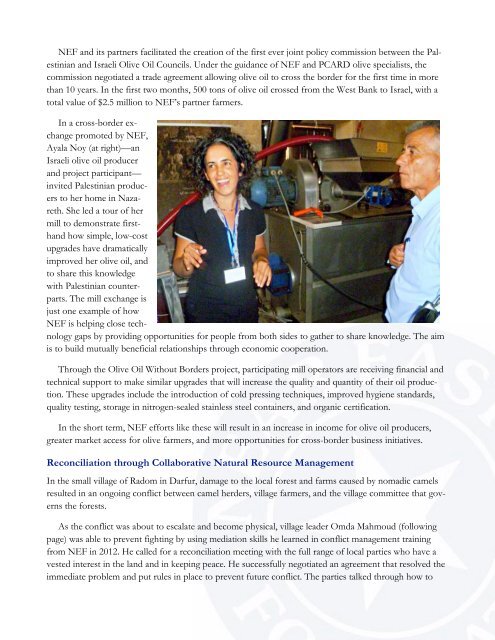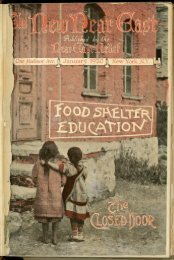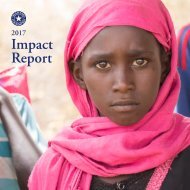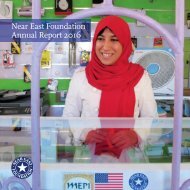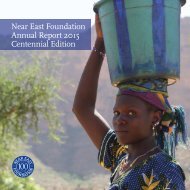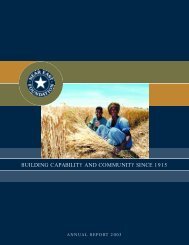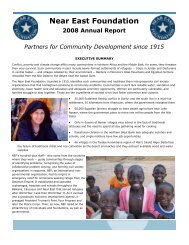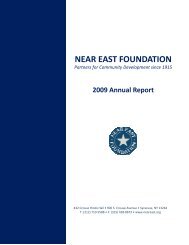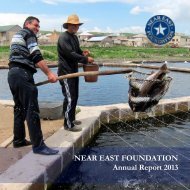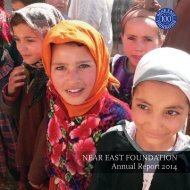Near East Foundation 2012 Annual Report
- No tags were found...
You also want an ePaper? Increase the reach of your titles
YUMPU automatically turns print PDFs into web optimized ePapers that Google loves.
NEF and its partners facilitated the creation of the first ever joint policy commission between the Palestinian<br />
and Israeli Olive Oil Councils. Under the guidance of NEF and PCARD olive specialists, the<br />
commission negotiated a trade agreement allowing olive oil to cross the border for the first time in more<br />
than 10 years. In the first two months, 500 tons of olive oil crossed from the West Bank to Israel, with a<br />
total value of $2.5 million to NEF’s partner farmers.<br />
In a cross-border exchange<br />
promoted by NEF,<br />
Ayala Noy (at right)—an<br />
Israeli olive oil producer<br />
and project participant—<br />
invited Palestinian producers<br />
to her home in Nazareth.<br />
She led a tour of her<br />
mill to demonstrate firsthand<br />
how simple, low-cost<br />
upgrades have dramatically<br />
improved her olive oil, and<br />
to share this knowledge<br />
with Palestinian counterparts.<br />
The mill exchange is<br />
just one example of how<br />
NEF is helping close technology<br />
gaps by providing opportunities for people from both sides to gather to share knowledge. The aim<br />
is to build mutually beneficial relationships through economic cooperation.<br />
Through the Olive Oil Without Borders project, participating mill operators are receiving financial and<br />
technical support to make similar upgrades that will increase the quality and quantity of their oil production.<br />
These upgrades include the introduction of cold pressing techniques, improved hygiene standards,<br />
quality testing, storage in nitrogen-sealed stainless steel containers, and organic certification.<br />
In the short term, NEF efforts like these will result in an increase in income for olive oil producers,<br />
greater market access for olive farmers, and more opportunities for cross-border business initiatives.<br />
Reconciliation through Collaborative Natural Resource Management<br />
In the small village of Radom in Darfur, damage to the local forest and farms caused by nomadic camels<br />
resulted in an ongoing conflict between camel herders, village farmers, and the village committee that governs<br />
the forests.<br />
As the conflict was about to escalate and become physical, village leader Omda Mahmoud (following<br />
page) was able to prevent fighting by using mediation skills he learned in conflict management training<br />
from NEF in <strong>2012</strong>. He called for a reconciliation meeting with the full range of local parties who have a<br />
vested interest in the land and in keeping peace. He successfully negotiated an agreement that resolved the<br />
immediate problem and put rules in place to prevent future conflict. The parties talked through how to<br />
!


